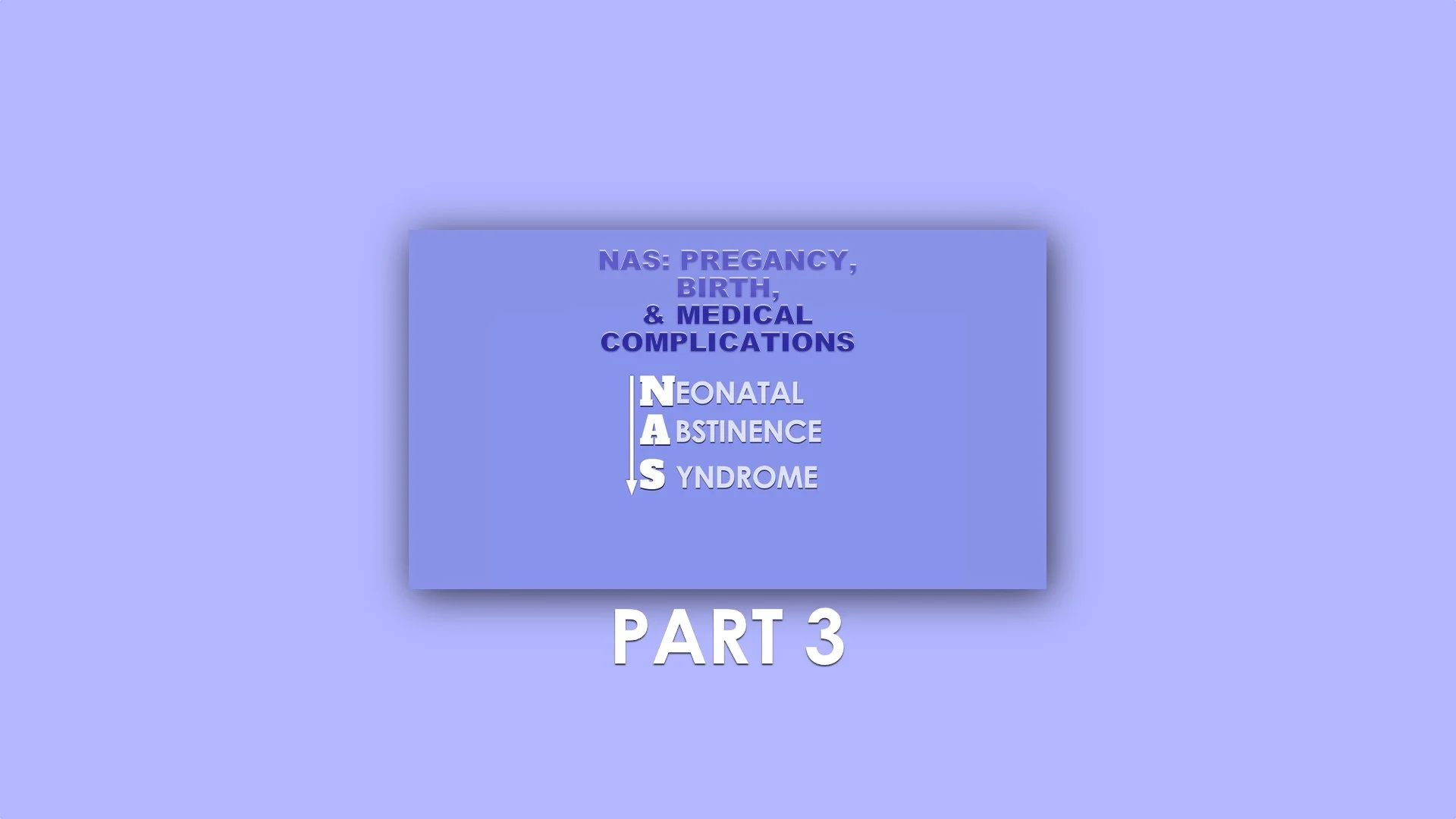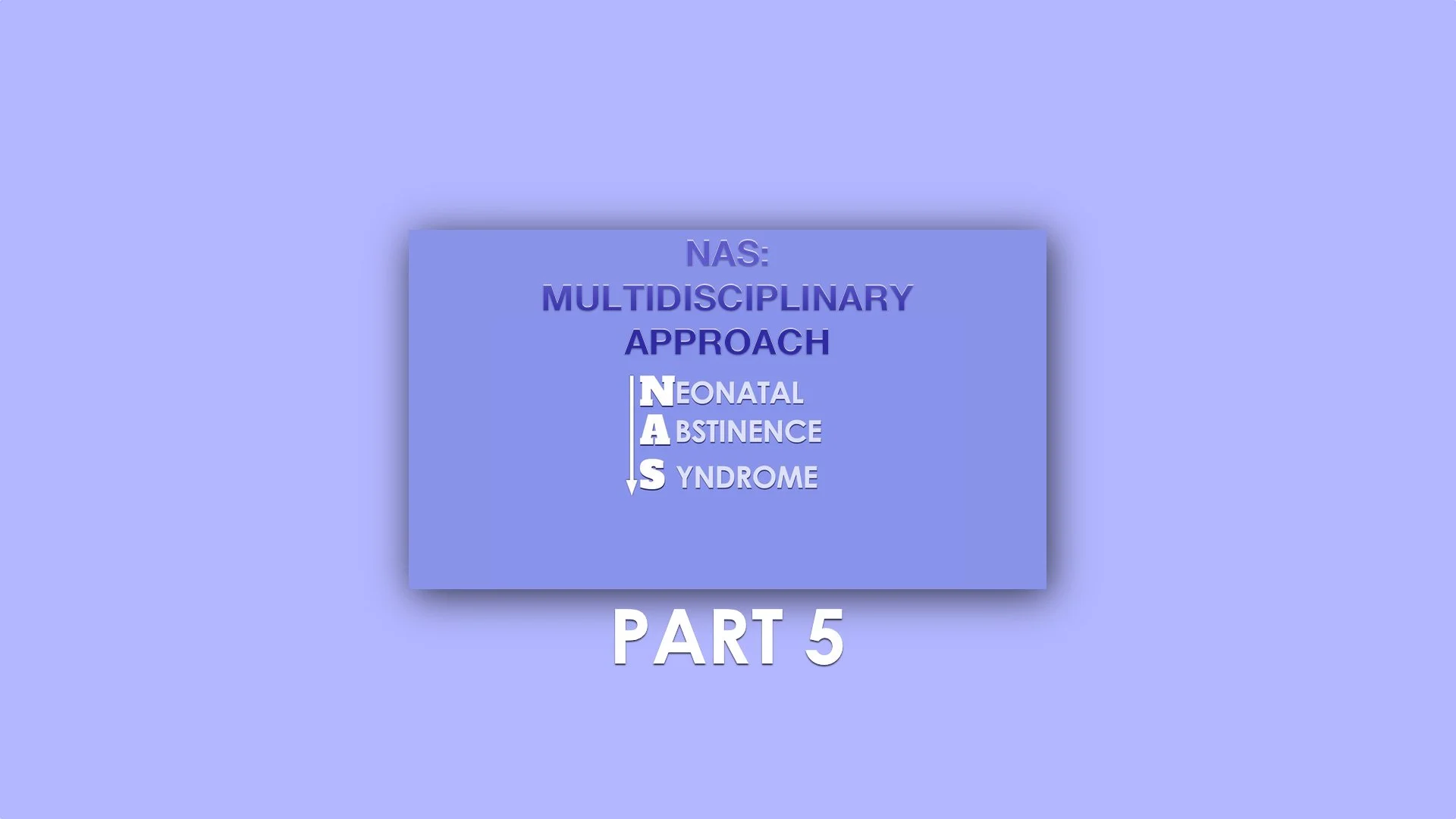This is "THE" RESOURCE for Caregivers of Infants impacted by Prenatal Drug Exposure
〰️
This is "THE" RESOURCE for Caregivers of Infants impacted by Prenatal Drug Exposure 〰️
Dear Providers Welcome to THE NAS CARE Resource ToolKit!!
STRATEGIES AND RESOURCES FOR PROVIDERS
This Toolkit provides valuable strategies and resources when caring for infants who have been impacted by Neonatal Abstinence Syndrome (NAS) OR Neonatal Neurotoxic Effects (NNE) (see definitions of these terms below). In fact, these strategies can assist in caring for any infant who is presenting these signs or behaviors. While you may find many of the strategies in the toolkit helpful in your care of the infant, please also refer parents/caregivers to the ToolKit to assist them in their daily care of their baby.
WHAT THE TOOLKIT IS AND IS NOT
Please note that this is not a toolkit for medical care of infants born with NAS. This ToolKit is one of the best resource tools providing strategies on how to assist infants who are experiencing NAS signs from a caregiving perspective. However, included on this page are valuable resources for medical professionals.
The NAS CARE Resource ToolKit has information on how Neonatal Abstinence Syndrome (NAS) can impact infants. In addition to explaining the NAS signs, the ToolKit offers strategies on how to help them with caregiving strategies. A team of experts have provided information to help understand why infants might be having these signs AND they offer strategies to ameliorate their functioning.
UNIQUE MATERIALS FOR PROVIDERS
We are so grateful to provide to you these materials that are unique to this ToolKit and an invaluable resource for providers.
This white paper was written to bring awareness to the impact of NAS on newborns AND to provide advocacy and information to assist in enhancing the care of infants impacted by NAS. It is important to clarify here that this White Paper does not have as its focus medical treatment of NAS per se, but rather the caregiving environment and response that NAS affected infants need in those first few months. This White Paper was inspired by a three day Think Tank with the transdisciplinary team that contributed to the content of the NAS Care Resource ToolKit. Note, that the uniqueness of this White Paper is that it offers multidisciplinary input, and it provides information from the perspective of the caregiving environment.
RESOURCES ON NAS FROM DR. FINNEGAN
THE HISTORY OF NAS/NNE WITH DR. LORETTA FINNEGAN
We are excited to bring to you this invaluable resource! This 5-part video series on the history of NAS was developed exclusively for this ToolKit. It features Dr. Loretta Finnegan and is a tribute to her groundbreaking work in this field. It was she who coined the ‘term’ NAS in the 1980’s, and who also is credited with the development of an assessment tool for neonatal opioid abstinence, now used widely in the USA and abroad. This series will offer insights into the historical origins of the term NAS, NAS signs, the course of NAS, and the importance of immediate and early care for these infants from both a knowledgeable medical and attuned caregiving environment. We hope you appreciate this unique offering. DR. FINNEGAN’S FULL BIOGRAPHY
NEONATAL ABSTINENCE SYNDROME (NAS)
NAS is a generalized disorder of four human systems (central nervous system, gastrointestinal, respiratory and the autonomic nervous system) in a newborn baby exposed primarily to opioids during pregnancy resulting in a behavioral pattern with a clinical picture of:
• CENTRAL NERVOUS SYSTEM (irritability, high pitched cry, tremors, stiff muscles, increased reflexes, uncoordinated and ineffectual sucking and swallowing reflexes, and sleep disturbances)
• GASTROINTESTINAL SYSTEM ** (vomiting, loose stools, and poor intake with weight loss)
• RESPIRATORY SYSTEM (excessive secretions, nasal stuffiness, and rapid respirations)
• AUTONOMIC NERVOUS SYSTEM (sweating, sneezing, yawning, and increased temperature)
**(Hyperactivity, vomiting, diarrhea, increased insensible water loss usually leads to excessive weight loss, suboptimal weight gain)
There are two types of abstinence: prenatal and postnatal. Prenatal abstinence is caused by discontinuation of drugs taken by the pregnant mother, while postnatal abstinence is caused by discontinuation of drugs at birth with the cutting of the umbilical cord.
NEONATAL NEUROTOXIC EFFECTS (NNE)
Effects other than NAS, can occur as a result of exposure to other psychoactive drugs (licit and illicit, prescribed, and non-prescribed) during pregnancy. As with opioids, consequences may include but are not limited to preterm delivery, intrauterine growth restriction (IUGR), oxygen deprivation and low birth weight. As with NAS, infants with NNE may present with signs from one or more human systems (central nervous system, gastrointestinal, respiratory and the autonomic nervous system). Frequently noted symptoms may include:
• CENTRAL NERVOUS SYSTEM (irritability, high pitched cry, tremors, hypertonicity or hypotonicity, increased or absent reflexes, uncoordinated and ineffectual sucking and swallowing reflexes, and sleep disturbances)
• GASTROINTESTINAL SYSTEM (regurgitation, vomiting, GERD, loose stools/constipation, and poor intake with weight loss)
• RESPIRATORY SYSTEM (excessive secretions, and nasal stuffiness)
• AUTONOMIC NERVOUS SYSTEM (sneezing, yawning)
After delivery, NNE signs such as behavioral, psychiatric, and neurodevelopmental deficits (e.g. regulation, sensory and learning disorders) can manifest in infancy and/or later in childhood.
As mentioned above, the NAS CARE Resource ToolKit has a description of withdrawal signs and offers strategies from a knowledgeable and caring team of professionals on how to help the infant impacted by NAS.
There are also TIPPs: NAS CARE (TimeIn Programs Parenting Strategies) that offer more parenting tips and strategies. For example, there is a video that shows you how to do the Soothe technique a calming strategy for infants developed by Dr Kiti. There is also a video from one of our consultant occupational therapists on Essential Interventions. As more resources are developed, they will be offered under TimeIn Programs Parenting Strategies.
We also have talented musicians who created calming and not overstimulating music for high risk infants. There are two Therapeutic Music pieces offered at this time with others coming soon.
The ToolKit will also direct you to other Resources that may be available online.
This ToolKit is FREE.
We will continue adding to the ToolKit, so make sure to come back 😊
It is important to point out that the strategies offered here are based
on promoting healthy physical, emotional and neuro development.
NOTE:
These strategies can help ANY baby.
〰️
NOTE: These strategies can help ANY baby. 〰️
© 2025 Dr. Kiti Freier Randall


















